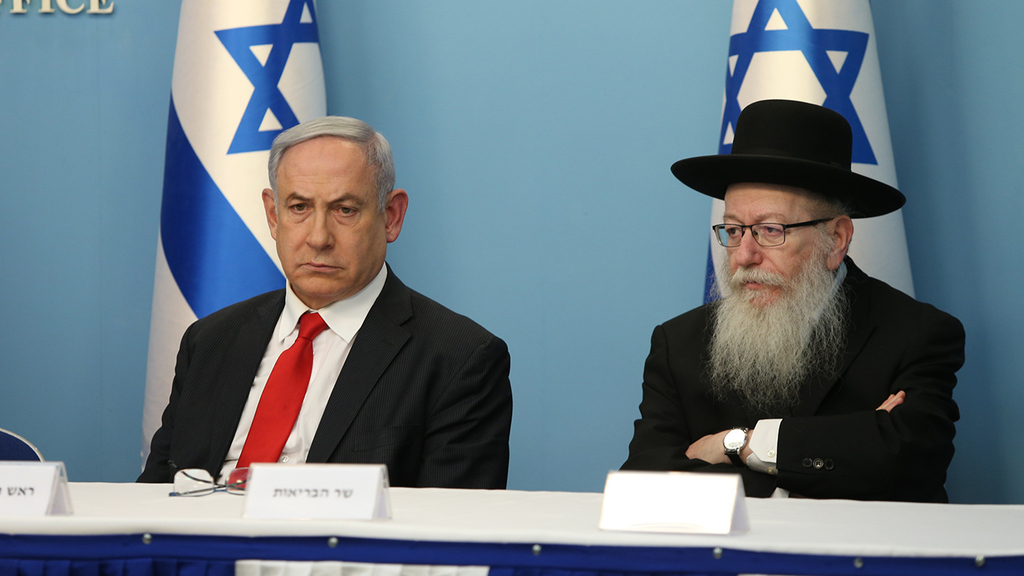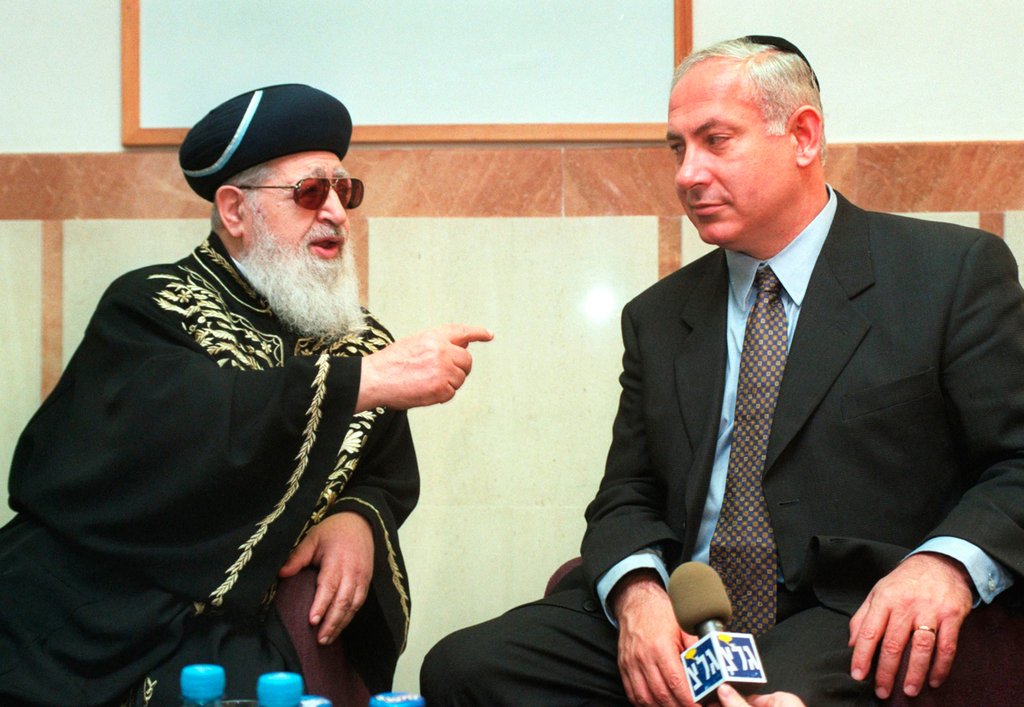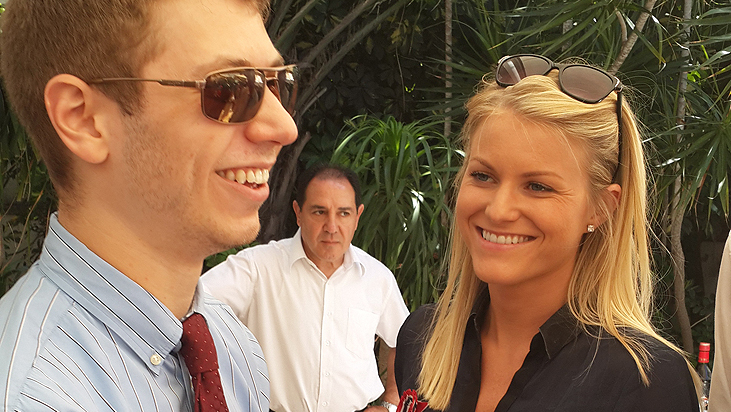While the so-called "coalition for change" continues with its apparently futile efforts to forge a majority government, the possibility remains that Israel will see another right-wing, religious coalition.
The heads of the parties in this latter bloc, which is led by Prime Minister Benjamin Netanyahu, have been made to sign a document committing to a "real right-wing government" and to thwarting the ongoing attempts by Yesh Atid leader Yair Lapid to put together what Netanyahu has branded a coalition of left-wing and Arab parties.
4 View gallery


Prime Minister Benjamin Netanyahu and then-health minister Yaakov Litzman of United Torah Judaism, March 2020
(Photo: Amit Shabi)
Yet there is just one party in Netanyahu's camp - the Religious Zionist party - that represents a true right-wing worldview, opposing any territorial concessions to the Palestinians and promoting annexation of the West Bank.
The ultra-Orthodox parties have historically supported moderate Israeli positions on land and security. The Shas party, on the orders of its late founder and spiritual leader Rabbi Ovadia Yosef, abstained during the 1993 Knesset vote to accept the Oslo Accords, thereby ensuring their ratification.
4 View gallery


Late Shas founder Rabbi Ovadia Yosef and Prime Minister Benjamin Netanyahu in 1998
(Photo: Reuters)
In 1979, when Israel was on the cusp of signing its peace deal with Egypt, Yosef went so far as to state that Jewish law did not prohibit a withdrawal from parts of the Land of Israel in the interests of peace.
"...it seems that according to all opinions it is permitted to return areas of Israel in order to achieve this aim, since nothing is more important than the saving of life," Yosef said at the time.
And in another rulings he asked: "So I will sacrifice the life of a people for a piece of land? For a mountain or a hill?"
The Ashkenazi ultra-Orthodox parties were also previously seen to be supportive of peace moves such as territorial compromise. In fact one of their most revered spiritual leaders, Rabbi Elazar Menachem Shach, said that it was Torah and not Zionism that would ensure the continued existence of the Jewish people.
Shach's opposition to the Israeli left was at the time based on its secularism. He slammed the Kibbutz Movement and non-religious Israelis who did not observe Shabbat or Yom Kippur, or see the importance of ritual bathing.
Only the Chabad Hassidic sect took a right-wing position and campaigned vigorously for Netanyahu's election in 1996. But they withdrew that support after he implemented the Oslo Accords, signed the Wye River Memorandum to hand Hebron over to the Palestinian Authority and voted in favor of the withdrawal from Gaza.
Even Chabad rabbi and Australian millionaire Joseph Gutnick, who bankrolled the Netanyahu campaign for the 1996 elections, said at the time that the prime minister made decisions based on his political and personal interests.
Netanyahu was also criticized by the ultra-Orthodox for marrying a non-Jewish woman (his second wife Fleur Cates converted to Judaism through the Conservative Movement).
When his son Yair dated a non-Jewish Norwegian woman and Netanyahu boasted about it to the visiting prime minister of Norway, Shas leader Aryeh Deri said the matter was not personal but had symbolic significance for the Jewish people.
4 View gallery


Yair Netanyahu and his Norwegian ex-girlfriend Sandra Leikanger in 2014
(Photo: Itamar Eichner)
It seems clear that if they are not motivated by strong right-wing ideology or a personal affinity to Netanyahu, the alliance between the ultra-Orthodox parties and Netanyahu's Likud is based on money and favorable legislation such as IDF exemptions for a growing number of Haredi men.
If these are indeed the motivations of Netanyahu's firm bloc of supporters, their defection to an alternative coalition cannot be discounted.
And should they decide to join the "coalition for change," it would be rightfully seen as the unity government it claims to want.


